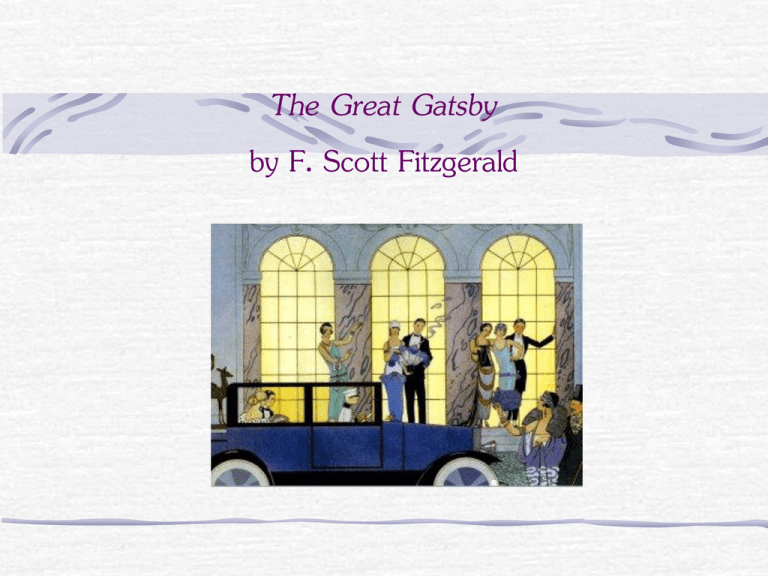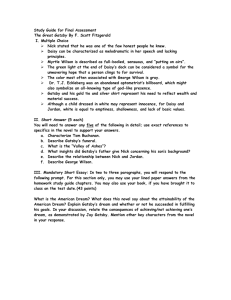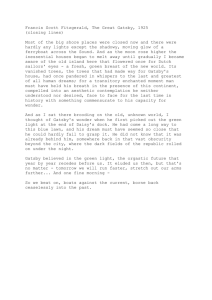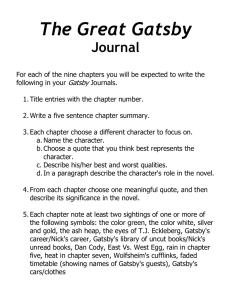The Great Gatsby by F. Scott Fitzgerald
advertisement

The Great Gatsby by F. Scott Fitzgerald “Then wear the gold hat if that will move her: If you can bounce high, bounce for her too, Till she cry, “Lover, gold-hatted, high-bouncing lover, I must have you.” - Thomas Parke D’Invilliers Key Facts Genre – Modernist, Jazz Age novel, novel of manners Time written: 1923 –24 Narrator: Nick Carraway – not only narrates but implies that he is the book’s author Point of view: first and third person – some sections presented objectively and some sections presented with his own interpretations Tone: Nick’s attitudes towards Gatsby are ambivalent and contradictory – at times he seems to disapprove of Gatsby’s excesses and at other times, he admires Gatsby and describes him in a nostalgic tone Tense: past Setting: Summer 1922 Place: Long Island and New York City Protagonist: Gatsby and/or Nick Characters Nick Carraway: narrator and moral arbiter of The Great Gatsby Tom Buchanan: represents brutality and the moral carelessness of the established rich Daisy Fay Buchanan: Nick’s distant cousin and Tom’s wife. She is the “golden girl” who has become the incarnation of Gatsby’s dream Jordan Baker: an attractive woman golfer who becomes involved with the narrator and who is given to compulsive lying Jay Gatsby: a racketeer and a romantic idealist, he devotes his life to amassing the wealth he thinks he need to win Daisy and thereby make his dream come true George Wilson: the proprietor of a shabby garage in the Valley of Ashes. Myrtle Wilson: a woman of ludicrous ostentation, whose “animal vitality” attracts Tom Owl-Eyes: A stout, middle-aged man who attends Gatsby’s parties Meyer Wolfsheim: The Jewish gambler and racketeer who is Gatsby’s business associate Symbols The Valley of Ashes and ashes – the modern world The green light at the end of Daisy’s dock East Egg and West Egg The parties The careers of the main characters The eyes of Dr. T.J. Eckleburg – God The automobile – an ideal based on materialism is ultimately destructive Themes The decline of the American Dream The spirit of the 1920s The difference between social classes The role of symbols in the human search for meaning The role of the past in dreams of the future Motifs: The connection between events and weather The connection between geographical location and social values Images of time Extravagant parties The quest for wealth





